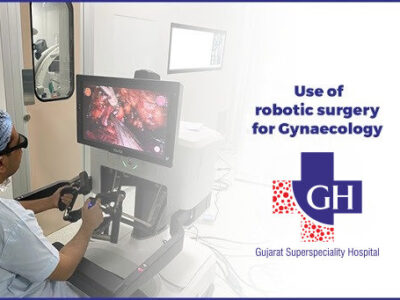Polycystic ovary syndrome (PCOS) is an endocrine system disorder where small fluid-filled sacs develop on the ovaries. It is also known as Stein- Leventhal syndrome. The symptoms include changes in the menstrual cycle , excess hair growth, acne and many more. If left untreated it can lead to infertility and other complications. The cysts are not harmful but thy can lead to hormonal imbalance.
Early diagnosis and treatment are recommended. Weight loss interventions must be addressed to reduce the risk of associated health disorders, such as insulin resistance, type 2 diabetes, high cholesterol, heart diseases and high blood pressure.
More than half of the women with PCOS develop type 2 diabetes before the age of 40 and around 70% of fertility issues are related to PCOS. Women who conceive with PCOS have a higher incidence of miscarriage, gestational diabetes, pregnancy induced high blood pressure, preeclampsia and premature delivery.

RISK FACTORS
PCOS has a genetic component and family history of PCOS can be a strong risk factor. Excessive insulin also affects women’s ability to ovulate because of its effect on androgen production. Researches show that women with PCOS have low- grade inflammation that stimulates polycystic ovaries to produce androgens.
ASSOCIATED HEALTH RISKS
There are several health risks associated with PCOS like-
- Infertility
- High cholesterol
- Elevated lipids
- Sleep apnea
- Type 2 diabetes
- Abnormal uterine bleeding
- Obesity
- Metabolic syndromes
- Non alcoholic fatty liver
- Depression and anxiety
SYMPTOMS OF PCOS
Apart from the cysts on ovaries, PCOS symptoms include-
- Irregular menses
- Excess androgen levels
- Sleep apnea
- High stress levels
- Skin tags
- Infertility
- Acne, oily skin and dandruff
- Fatigue
- Acanthosis, or dark patches of skin
- Female pattern balding
- Insulin resistance
- Pelvic pain
- Weight management difficulties
- Excessive facial and body hair also called hirsutism
- Decreased libido
TESTS AND DIAGNOSIS
There is no single test that can determine the presence of PCOS, but a doctor can diagnose it through medical history, physical examination that includes pelvic exam, and blood tests to measure the hormonal levels as well as blood glucose and cholesterol. An ultrasound can be used to look the ovaries and uterus.
MANAGEMENT
PCOS management focuses on managing the symptoms that concerns an individual. This may include infertility, hirsutism, acne or obesity. Specific treatments may include lifestyle changes and medications.
- Lifestyle modifications- this may include weight loss through low- calorie diet and moderate intensity exercises or activities in a combination. Losing weight may increase the effectiveness of the medications provided by the physician.
- Medications – this may be given by the health care provider to manage irregular menses that may include –
- Progestin therapy- taking progestin for 10- 14 days every 1 to 2 month can help regulate periods and protect against endometrial cancers. This progestin therapy does not improve the androgen levels and wont prevent pregnancy.
- Combination birth control pills- pills that contain both estrogen and progestin decrease androgen production and regulated estrogen. Regulating hormones can lower the risk of cancers, correct bleeding, excess hair growth and acne.
- Spironolactone- this medication blocks the effect of androgen on skin, including excess body hair and acne.
- Hair removal- electrolysis and laser hair removal are options to remove excess hair. Shaving, plucking or using creams that dissolves unwanted hair are other few options. But, these are temporary, and hair may thicken when it grows.
- Acne treatment- medications including pills and topical creams or gels may help to improve acne.
HOME REMEDIES
- Stay at a healthy weight- weight loss can lower insulin and androgen levels
- Limit carbohydrates- choose complex carbs which raise blood sugar levels slowly like wholegrains, fruits and vegetables.
- Be active- helps keep weight under control and reduces blood sugar levels.

